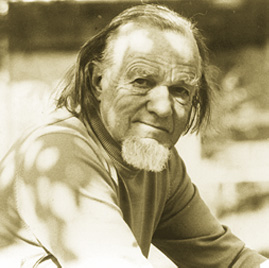As a university professor, I think a lot about what I should do in the classroom. What is the proper way to teach? How much do I let my beliefs enter into the subject? One of the biggest problems in many universities is when the classroom is used primarily as an indoctrination center for leftist ideology and all the trendy movements: multiculturalism, radical feminism, environmentalism (anyone notice an “ism” problem here?).
The response of most conservatives has been to call for a neutral classroom where, supposedly, facts are presented without any particular slant. Let the facts speak for themselves; allow the students to come up with their own rationales for what they believe. To a point, there is some truth in that approach, in that every student eventually is going to decide for themselves what they believe. But how much can the professor offer to influence those students?
I have it easier in one sense than many professors who are Christians teaching in public universities. Since I teach in an evangelical setting, there are parameters for my teaching. It’s assumed by the students that I will honor Biblical doctrines. Yet the issue remains the same since not every Christian professor applies those doctrines to their subjects in the same way.
Here’s how I explain to my students the approach that I take. First, I don’t believe that it’s possible for anyone to be totally objective in teaching. I reject the idea that education can be value-neutral. What we believe will come across in some way. Therefore, we are all subjective: our life experiences, backgrounds, and beliefs systems go with us into everything we do. This is not wrong. This is inescapable. As a Christian, I want it to be inescapable.
 The late Christian philosopher Francis Schaeffer said it best, I believe, when he explained,
The late Christian philosopher Francis Schaeffer said it best, I believe, when he explained,
People have presuppositions, and they will live more consistently on the basis of these presuppositions than even they themselves may realize. By presuppositions we mean the basic way an individual looks at life, his basic world view, the grid through which he sees the world. Presuppositions rest upon that which a person considers to be the truth of what exists. People’s presuppositions lay a grid for all they bring forth into the external world. Their presuppositions also provide the basis for their values and therefore the basis for their decisions.
My presuppositions are Christian. It is then natural and right that I should share those presuppositions in all I teach. Knowledge cannot be separated into some tight compartment, isolated from a person’s basic worldview. I will interpret my subject area [history, in this case] in accordance with the grid through which I see the world. What I believe to be truth will impact both what and how I teach.
There is a difference, though, between being subjective and being biased. Bias is an attitude that never allows any new information. It approaches the world with a view that all things must be squeezed into a preset idea or interpretation. If facts don’t fit this prejudgment, they must be forced to fit. Any university professor who does this is not teaching; he or she is simply trying to create ideological clones.
Do I want my students to agree with my views? Yes. But I can’t force them to agree. I have to win them over by the logic of the facts I present. I have to show them how the facts fit into my interpretation, all the while staying open myself to new information that may modify what I teach.
For instance, in American history, as much as I would like to make all the Founders into evangelical Christians, to do so would be to set aside some facts and dishonestly disseminate false information. Now, I believe the founding of America was based on Biblical thinking, for the most part, but I cannot “make” Benjamin Franklin a Christian without violating my own conscience before God.
I always keep in mind this one thing: first, I am a Christian; second, I am a professor. My overriding concern has to be the one that Jesus left as a charge for all Christians when He said,
Go therefore and make disciples of all the nations, baptizing them in the name of the Father and the Son and the Holy Spirit, teaching them to observe all that I commanded you.
So even when I teach history, my primary goal is to ensure that the study of history will lead my students into a stronger relationship with the One for whom all of life is to be lived. I’m in the process of making disciples. If I do anything that lessens their desire to know and love God, then I am a failure.
It’s an awesome responsibility, and one that I take seriously.
